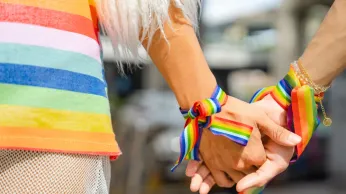
Sep 12
Kalda: The LGBTQ+ Mental Health App Transforming Community Support
READ TIME: 3 MIN.
The intersection of technology and queer advocacy continues to yield innovative solutions that address longstanding disparities in access, representation, and wellbeing. One of the most significant advances in this space is the emergence of platforms like Kalda—a mental health app designed specifically to meet the unique needs of queer individuals. As digital health solutions become increasingly vital, especially in the wake of global healthcare challenges, products like Kalda are not only leveraging technology to fill critical gaps but also fostering community, resilience, and empowerment among LGBTQ+ users worldwide .
Queer people face disproportionate mental health challenges due to social stigma, discrimination, and barriers to culturally competent care. Access to affirming, nonjudgmental support is often limited by long waiting times, lack of specialist providers, and geographic or financial constraints. The COVID-19 pandemic further exacerbated these disparities, straining public mental health systems and leaving many individuals without timely or appropriate care .
Kalda was developed in direct response to these challenges, with the explicit goal of providing a safe and inclusive digital space for LGBTQ+ people to access mental health resources. The app offers:
- Daily peer support: Users can connect with members of their community to find dolidatity and mutual support.
- Weekly group therapy sessions: Led by therapists trained in queer issues, these sessions address topics such as identity, relationships, coming out, and navigating discrimination.
- Resources tailored for queer needs: The platform provides educational materials, coping strategies, and connections to crisis support services, all curated to be relevant and affirming for diverse identities within the LGBTQ+ spectrum .
Importantly, Kalda’s design philosophy prioritizes privacy, inclusivity, and accessibility. The app incorporates gender-neutral language, allows for non-binary pronouns, and explicitly recognizes the varied experiences of transgender, non-binary, and queer users. This intentional design serves as a model for how digital products can center marginalized voices and foster genuine inclusivity .
Feedback from queer users and mental health professionals highlights Kalda’s role in reducing isolation and stigma. Many users report that having access to a supportive, understanding community—one that validates their identities and experiences—has a direct positive effect on their mental health. For those living in areas with limited LGBTQ+ resources, Kalda provides a crucial lifeline, connecting them with peers and professionals worldwide .
Mental health practitioners also point to the app’s group therapy sessions as a best practice for fostering resilience and self-acceptance. By facilitating open, guided conversations among queer individuals, Kalda helps break down the barriers of shame and secrecy that often compound mental health struggles .
Kalda’s success is emblematic of a broader movement within the tech sector, sometimes referred to as "Queertech," which encompasses both queer-specific products and mainstream technologies designed with inclusivity in mind. Other notable examples include:
- Peppy Health, which offers menopause support to all people, including transgender men and non-binary individuals with ovaries.
- MeeToo’s LGBTQ+ directory, providing resources, crisis support, and educational content for young queer people .
These advances show that technology, when thoughtfully designed, can be a powerful tool for advancing health equity. Yet, experts caution that inclusive design is an ongoing process. Issues such as data privacy, algorithmic bias, and digital access remain pressing concerns, requiring vigilance and community input to ensure new tools serve all users fairly and respectfully .
Despite its promise, digital mental health for LGBTQ+ people faces obstacles. Privacy risks, particularly regarding sensitive data, are heightened for marginalized groups who may face discrimination if their identities are disclosed. Harassment and exclusionary design can also undermine the safety and effectiveness of digital spaces. Organizations like LGBT Tech advocate for strong privacy protections, anti-harassment measures, and equitable access as essential standards for all emerging health tech .
Kalda and similar platforms are also navigating the challenge of scaling up while maintaining the intimacy and trust that make their services effective. As demand grows, ongoing collaboration with queer communities is crucial to ensure products remain responsive to evolving needs and identities.






